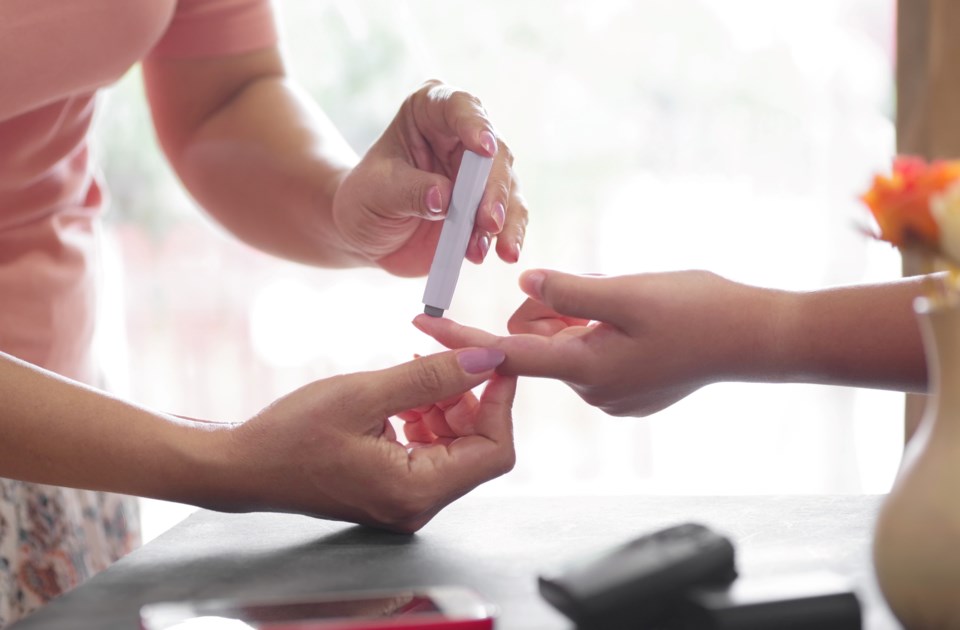For people living with diabetes, having to prick a finger with a lancet several times each day to draw blood needed to test blood sugar is just one of the nasty elements of living with the disease.
Starting today, a flash glucose monitor inserted through the skin that detects blood-sugar levels for up to 15 days without repeating that painful prick will be covered by BC PharmaCare.
The FreeStyle Libre sensor works in tandem with a handheld device or smartphone used for each scan and is now offered as a limited-coverage benefit for British Columbians.
Test results provided by glucose monitors enable diabetic patients or their caregivers to take action sooner, reducing the risk of hypoglycemia (sugar too low) or hyperglycemia (sugar too high). Regular scans empower patients to more accurately make adjustments in medications, food intake and physical activity.
BC PharmaCare has covered the Dexcom G6 continuous glucose monitor since June 2021 for about 13,000 patients. The FreeStyle Libre machine requires reduced frequency of sensor replacement and the province will support patients who want to switch.
In January 2019, B.C. invested $105-million over three years to reduce and/or eliminate Fair PharmaCare deductibles and co-payments for people with lower incomes. Patients must meet income eligibility requirements to have their PharmaCare coverage apply to the glucose monitor.
Diabetes is the sixth-leading cause of death in Canada and is a leading cause of blindness, end-stage kidney disease and non-traumatic limb amputation. Complications of poorly-controlled diabetes can range from acute (fatigue, ketoacidosis and seizures) to chronic (nerve and organ damage).
The warning signs of severely low blood sugar include: feeling weak, having difficulty walking or seeing clearly, acting strangely of feeling confused, fainting, seizures. Often, the help of somebody else is required to treat severely low blood sugar levels.
Very high blood sugar levels can be life-threatening. It can lead to complications such as diabetic ketoacidosis (diabetic coma), especially for people with Type 1 diabetes, or severe dehydration caused by the body trying to rid itself of excess sugar (more common with Type 2 diabetes).



